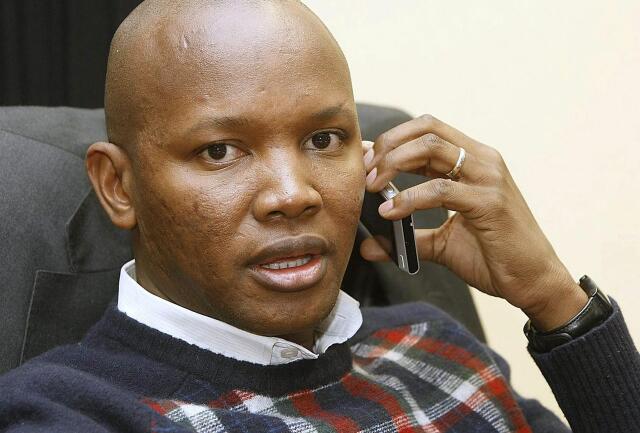Initially, Vodacom offered Nkosana Makate a payout of R47 million, however, his legal team rejected this offer. Makate insists his invention is worth at least around R10 billion.
‘PLEASE Call Me’ (PCM) inventor Nkosana Makate welcomed the Supreme Court of Appeal (SCA) judgment on Tuesday that ordered that cellphone giant Vodacom must make a new offer to Makate within 30 days.
This time Vodacom’s CEO Shameel Joosub had to make a new offer on a longer contract with the company – 18 years – as opposed to his stance that the contract was only five years.
The court ordered that Jossub’s determination of a reasonable compensation to Makate of R47 milion (based on a five-year contract) – made in 2019 – be set aside.
The court further ordered the matter to be remitted back to Joosub to determine the amount of a reasonable compensation due to Makate, based on Makate having had a contract with Vodacom for 18 years.
In terms of the SCA judgment, the new award due to be made by Vodacom must take into account the time value of money, calculated at an average inflation rate of 5% from March 1, 2001 to February 28, 2019.
The court made it clear that Vodacom and Joosub had to make this new determination within 30 calendar days.
Makate said that he is very happy with the order. “I am thrilled with the order as it is much better than the earlier (Gauteng High Court, Pretoria) order,” he said.
Makate added that the amount due will now have to be evaluated against a much longer contract he held with Vodacom.
In 2022, Judge Wendy Hughes ordered that Vodacom should recalculate the amount due to Makate and referred the matter back to them for this purpose. In her judgment, Judge Hughes provided specific guidelines that Vodacom must follow when conducting the new calculations..
Vodacom subsequently turned to the SCA as it felt that its original offer of R47m was fair. It, however, also lost this round to have its offer enforced.
Makate worked for Vodacom as a trainee accountant. In 2000, he came up with a brilliant idea: a cellphone user with no airtime could send a request to another user with airtime to call the former.
Based on this idea, Vodacom developed the PCM product. It turned out to be a resounding success. However, Vodacom refused to pay Makate anything for his idea. In 2008, he sued Vodacom in the high court, which was followed by long litigation.
At the end, Vodacom made him a R47m offer, which he refused.
Makate insisted that his invention was worth at least around R10 billion.
One of the issues before the SCA was whether Makate was entitled to a percentage of the revenue earned from PCM.
In his judgment, Judge Ashton Schippers commented that Vodacom would never have launched the PCM service unless it was financially viable.
“PCM was, by Vodacom’s own admission, a triumph and contradicts the CEO’s muted description of it as a ‘good idea’ that would ‘benefit customers’,” the judge said.
He added that the CEO ignored Vodacom’s newsletter – quoted by the Constitutional Court when the matter made a turn there, – which states: “ ‘Call Me’ has been a big success. On the first day of operation about 140,000 customers made use of the service.”
Given the success of the PCM service – all of which would have been known to a CEO in 2001, it is extremely unlikely that the contract would have endured for five years at most. The CEO’s claim that a tenure of five years is “generous” (when he offered the R47m), does not even arise, Judge Schippers remarked.
He added that logic and business sense dictate that after the launch of PCM, and as it continued being offered as a free service, Vodacom would have continued to monitor the success of the PCM service.
If it was not commercially viable, it would have been discontinued. in light of the obvious success of the PCM service, it would have been irrational for Vodacom to terminate it after three (or five) years.
“What all of this shows, is that the CEO’s determination as to the duration of the contract is unreasonable and patently inequitable,” the judge said.
He further said that there is no reason why Makate should be content with a contract for only five years. “The commercial viability of PCM is a proven fact. It is common ground that Vodacom has used the PCM service for more than 20 years and continues to do so. Mr Makate has stated that he is willing to accept a contract duration of 18 years. That, I think, is both reasonable and fair,” the judge said.








